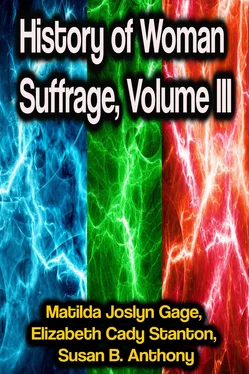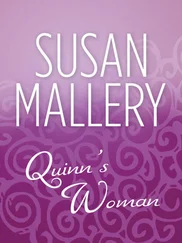The chairman of the committee in reporting this bill back from the Judiciary Committee said that the bill as it passed the House of Representatives gave privileges to women which men did not enjoy; that is to say, the Supreme Court can by a change of rule require further qualification of men, whereas in regard to women, if this provision were put into the statute, the Supreme Court could not rule them out even though it may be necessary in its judgment to get a higher standard of qualifications than its present rules prescribe. Although I observe that my time is up, I ask indulgence for a moment or two longer. As this is a question of some interest and women cannot appear here to speak for themselves, I hope I may be allowed to speak for them a moment. Now, there is something in the objection stated by the chairman of the Committee on the Judiciary—that is to say, the bill would take the rule of the Supreme Court and put it in the statute and apply it to women, thereby conferring exceptional privileges; but that is not my intention at all, and therefore I have proposed that women shall not be excluded from practicing law, if they are otherwise qualified, on account of sex, and that is the provision which I want to send back to the Judiciary Committee.
Mr. Garland: I wish to ask one question of the senator from California. Suppose the court should exclude women, but not on account of sex, then what is their remedy?
Mr. Sargent: I do not see any pretense that the court could exclude them on except on account of sex.
Mr. Garland: If I recollect the rule of the Supreme Court in regard to the admission of practitioners (and I had to appear there twice to present my claim before I could carry on my profession in that court), I do not think any legislation is necessary to aid them by giving them any more access to that court than they have at present under the rules of the Supreme Court.
Mr. Sargent: I believe if the laws now existing were properly construed (of course I speak with all deference to the Supreme Court, but I express the opinion) they would be admitted, but unfortunately the court does not take that view of it, and it will wait for legislation. I purpose that the legislation shall follow. If there is anything in principle why this privilege should not be granted to women who are otherwise qualified, then let the bill be defeated on that ground; but I say there is no difference in principle whatever, not the slightest. There is no reason because a citizen of the United States is a woman that she should be deprived of her rights as a citizen, and these are rights of a citizen. She has the same right to life, liberty and the pursuit of happiness and employment, commensurate with her capacities, as a man has; and, as to the question of capacity, the history of the world shows from Queen Elizabeth and Queen Isabella down to Madame Dudevant and Mrs. Stowe, that capacity is not a question of sex.
Mr. McDonald: I have simply to say, Mr. President, that a number of States and territories have authorized the admission of women to the legal profession, and they have become members of the bar of the highest courts of judicature. It may very frequently occur, and has in some instances I believe really occurred, that cases in which they have been thus employed have been brought to the Supreme Court of the United States. To have the door closed against them when the cause is brought here, not by them, or when in the prosecution of the suits of their clients they find it necessary to come here, seems to me entirely unjust. I therefore favor the bill with the amendment. The proposed amendment is perhaps better because it does away with any tendency to discrimination in regard to the admissibility of women to practice in the Supreme Court.
The Presiding Officer: The senator from California moves that the bill be recommitted to the Committee on Judiciary.
Mr. Sargent: I have the promise of the chairman of the committee that the bill will soon be reported back, and therefore I am willing that it go to the committee, and I make the motion that it be recommitted. [The motion was agreed to.]
Mr. Sargent: I ask that the amendment which I propose be printed.
The Presiding Officer: The order to print will be made.
Mary Clemmer, the gifted correspondent of the New York Independent , learning that Senator Wadleigh was about to report adversely upon the sixteenth amendment, wrote the following private letter, which, as a record of her own sentiments on the question, she gave to Miss Anthony for publication in this history:
Hon. Bainbridge Wadleigh— Dear Sir : The more I think of it the more I regret that, as chairman of the Committee on Privileges and Elections, you regard with less favor the enfranchisement of women than did your distinguished predecessor, Senator Morton. At this moment, when your committee is discussing that subject, I sigh for the large outlook, the just mind, the unselfish decision of that great legislator. You were his friend, you respected his intellect, you believed in his integrity, you sit in his seat. You are to prepare the report that he would prepare were he still upon the earth. May I ask you to bring to that labor as fair a spirit, as unprejudiced an outlook, as just a decision as he would have done?
I ask this not as a partisan of woman's rights, but as a lover of the human race. In this faint dawn of woman's day, I discern not woman's development of freedom merely, but the promise of that higher, finer, purer civilization which is to redeem the world, the lack of which makes men tyrants and women slaves. You cannot be unconscious of the fact that a new race of women is born into the world, who, while they lack no womanly attribute, are the peers of any man in intellect and aspiration. It will be impossible long to deny to such women that equality before the law granted to the lowest creature that crawls, if he happens to be a man; denied to the highest creature that asks it, if she happens to be a woman.
On what authority, save that of the gross regality of physical strength, do you deny to a thoughtful, educated, tax-paying person the common rights of citizenship because she is a woman? I am a property-owner, the head of a household. By what right do you assume to define and curtail for me my prerogatives as a citizen, while as a tax-payer you make not the slightest distinction between me and a man? Leave to my own perception what is proper for me as a lady, to my own discretion what is wise for me as a woman, to my own conscience what is my duty to my race and to my God. Leave to unerring nature to protect the subtle boundaries which define the distinctive life and action of the sexes, while you as a legislator do everything in your power to secure to every creature of God an equal chance to make the best and most of himself.
If American men could say as Huxley says, "I scorn to lay a single obstacle in the way of those whom nature from the beginning has so heavily burdened," the sexes would cease to war, men and women would reign together, the equal companions, friends, helpers, and lovers that nature intended they should be. But what is love, tenderness, protection, even, unless rooted in justice? Tyranny and servitude, that is all. Brute supremacy, spiritual slavery. By what authority do you say that the country is not prepared for a more enlightened franchise, for political equality, if six women citizens, earnest, eloquent, long-suffering, come to you and demand both? No words can express my regret if to the minority report I see appended only the honored name of George F. Hoar of Massachusetts.
Mary Clemmer.
Your friend,
In response to all these arguments, appeals and petitions, Senator Wadleigh, from the Committee on Privileges and Elections, presented the following adverse report, June 14, 1878:
The Committee on Privileges and Elections, to whom was referred the Resolution (S. Res. 12) proposing an Amendment to the Constitution of the United States, and certain Petitions for and Remonstrances against the same, make the following Report:
Читать дальше












